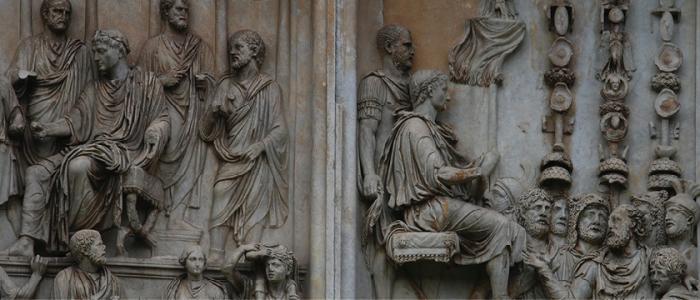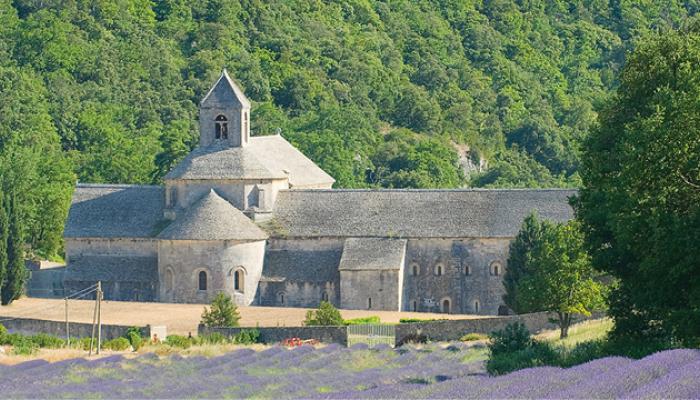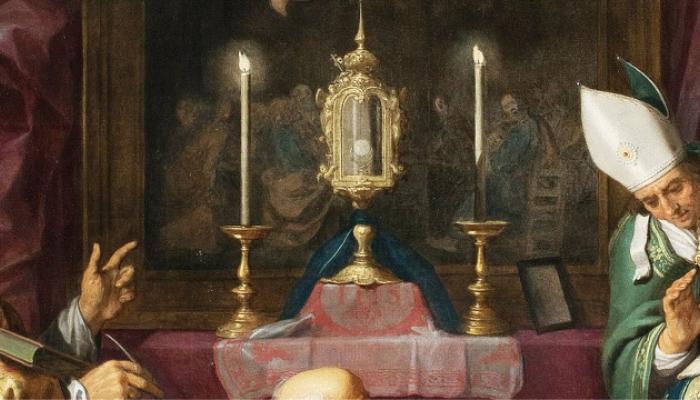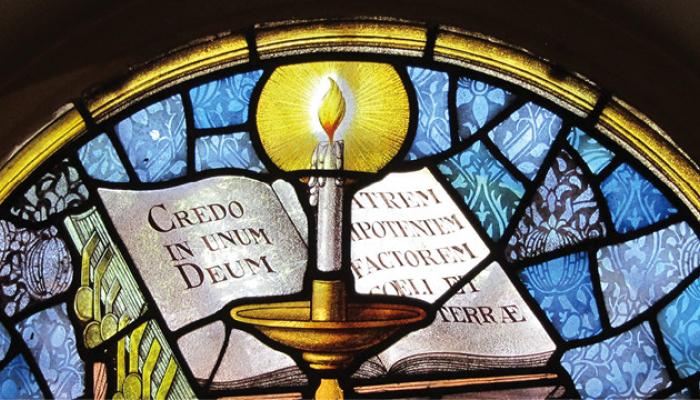
2.20 What changed with Emperor Constantine?
In 312 AD Constantine defeated his opponent and subsequently became the ruler of the entire Roman Empire. Although he was only baptised at the end of his life, he was in fact the first Christian emperor.
In the 'Edict of Milan', Constantine decreed that Christians should no longer be persecuted, and that the possessions that had been taken from them had to be returned. Christians could now openly live their faith, and were even involved in the administration of the empire.
The Council of Nicaea, the first Ecumenical Council, [was] convoked by the Emperor Constantine in May 325 A.D. to ensure Church unity. The Nicene Fathers were thus able to address various issues and primarily the serious problem that had arisen a few years earlier from the preaching of the Alexandrian priest, Arius... Constantine was not so much concerned with theological truth but rather with the unity of the Empire and its political problems. [Pope Benedict XVI, General Audience, 20 June 2007]





